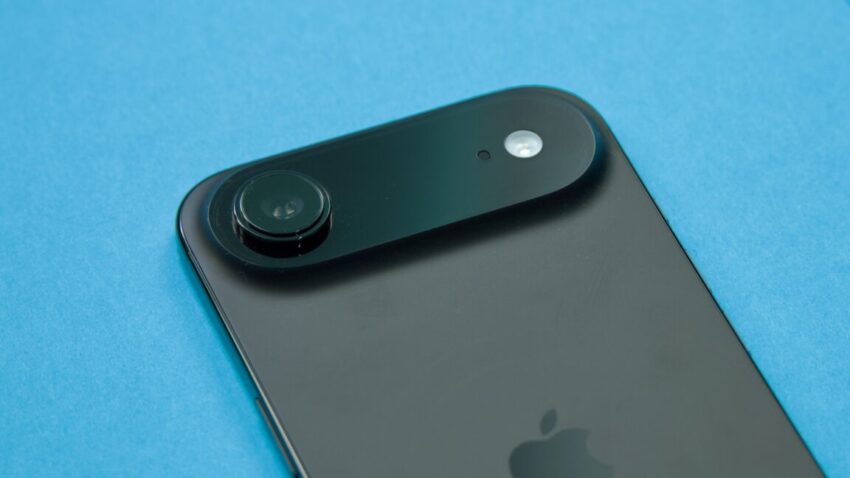
reports suggest apple is already pulling back Recent reports indicate that Apple is reducing its production plans for the iPhone Air due to disappointing sales performance.
reports suggest apple is already pulling back
Overview of the iPhone Air
Launched as part of Apple’s 2025 lineup, the iPhone Air was positioned as a unique offering within the company’s smartphone portfolio. Unlike its predecessors, the iPhone Air aimed to provide a lighter, more compact alternative while still delivering high-performance features. The device was designed to appeal to consumers looking for a blend of portability and functionality, making it one of the most intriguing releases of the year.
Design and Features
The iPhone Air stands out primarily due to its design. Weighing significantly less than the standard iPhone models, it offers a sleek profile that is easy to handle and carry. The device incorporates advanced technology, including a high-resolution display, improved battery life, and enhanced camera capabilities. These features were designed to attract a diverse range of users, from casual smartphone owners to tech enthusiasts.
Initial Reception
Upon its release, the iPhone Air received positive reviews from critics and consumers alike. Many praised its lightweight design and innovative features, which seemed to set it apart from the more traditional iPhone models. Initial sales figures indicated a promising start, leading many to believe that the iPhone Air could carve out a significant niche in the competitive smartphone market.
Sales Performance and Analyst Insights
Despite the initial enthusiasm surrounding the iPhone Air, recent reports have raised concerns about its sales trajectory. Analyst Ming-Chi Kuo, known for his reliable insights into Apple’s supply chain, revealed that demand for the iPhone Air “has fallen short of expectations.” This statement has significant implications for Apple’s production strategy moving forward.
Production Adjustments
Kuo’s analysis indicates that Apple is scaling back both shipments and production capacity for the iPhone Air in response to the lower-than-anticipated demand. This adjustment suggests that the company is taking proactive measures to align its inventory with actual market conditions. Such a move is not uncommon in the tech industry, where companies must remain agile in response to fluctuating consumer preferences.
Comparative Performance with Other Models
Interestingly, the decline in demand for the iPhone Air appears to be an isolated issue. Reports from other analysts, including those from Mizuho Securities and Nikkei Asia, indicate that demand for the iPhone 17 and 17 Pro models remains robust. This contrast highlights that the challenges facing the iPhone Air are not indicative of a broader slowdown in Apple’s smartphone sales, which is a positive sign for the company overall.
Market Context and Implications
The smartphone market is notoriously competitive, with numerous manufacturers vying for consumer attention. Apple’s decision to introduce the iPhone Air was likely influenced by the need to differentiate its product lineup in an increasingly saturated market. However, the early indications of underperformance raise questions about the effectiveness of this strategy.
Consumer Preferences
Understanding consumer preferences is crucial for any tech company, and Apple is no exception. The iPhone Air was designed to appeal to a segment of the market that values portability and ease of use. However, it appears that many consumers may still prefer the more robust features offered by the iPhone 17 and 17 Pro models. This preference could stem from a variety of factors, including a desire for advanced camera capabilities, larger displays, and overall performance.
External Factors
While the reports suggest that the decline in demand for the iPhone Air is not linked to external factors such as tariffs or economic downturns, it is essential to consider the broader market landscape. The smartphone industry is influenced by numerous variables, including consumer sentiment, technological advancements, and competitive pricing. Any shifts in these areas could impact sales across all models, including the iPhone Air.
Stakeholder Reactions
The news of reduced demand for the iPhone Air has elicited a range of reactions from stakeholders, including investors, analysts, and consumers. For investors, the adjustment in production plans may raise concerns about Apple’s ability to innovate and capture market share. However, the continued strong performance of other models may mitigate some of these worries.
Investor Sentiment
Investors closely monitor sales performance as a key indicator of a company’s health. The news of lower-than-expected demand for the iPhone Air could lead to fluctuations in Apple’s stock price, as market participants reassess their expectations for future growth. However, the strong sales of the iPhone 17 and 17 Pro may provide a buffer, allowing investors to maintain confidence in Apple’s overall strategy.
Consumer Feedback
Consumer feedback is another critical factor in shaping the future of the iPhone Air. Early adopters may have had high expectations for the device, but if their experiences do not align with those expectations, it could lead to negative word-of-mouth and decreased interest. Apple will need to address any concerns raised by consumers to improve the iPhone Air’s market position.
Future Considerations
As Apple navigates the challenges associated with the iPhone Air, several considerations will be crucial for its future success. The company must evaluate its product strategy, marketing efforts, and consumer engagement to ensure that it remains competitive in the smartphone market.
Product Strategy
Apple may need to reassess its product strategy for the iPhone Air. This could involve enhancing its features, adjusting its pricing, or refining its marketing approach. By aligning the product more closely with consumer preferences, Apple could potentially revitalize interest in the iPhone Air and improve its sales performance.
Marketing and Consumer Engagement
Effective marketing will be essential for the iPhone Air’s success moving forward. Apple has a history of successful marketing campaigns that resonate with consumers, and leveraging these strategies could help boost awareness and interest in the iPhone Air. Additionally, engaging with consumers through feedback channels can provide valuable insights into their needs and preferences, allowing Apple to make informed decisions about future iterations of the device.
Conclusion
The initial excitement surrounding the iPhone Air has been tempered by reports of disappointing sales performance. While the device was designed to offer a unique alternative within Apple’s smartphone lineup, early indicators suggest that it has not resonated as strongly with consumers as anticipated. As Apple adjusts its production plans in response to this reality, the company will need to carefully consider its strategy moving forward to ensure that it remains competitive in the ever-evolving smartphone market.
Source: Original report
Was this helpful?
Last Modified: October 23, 2025 at 8:36 pm
1 views














